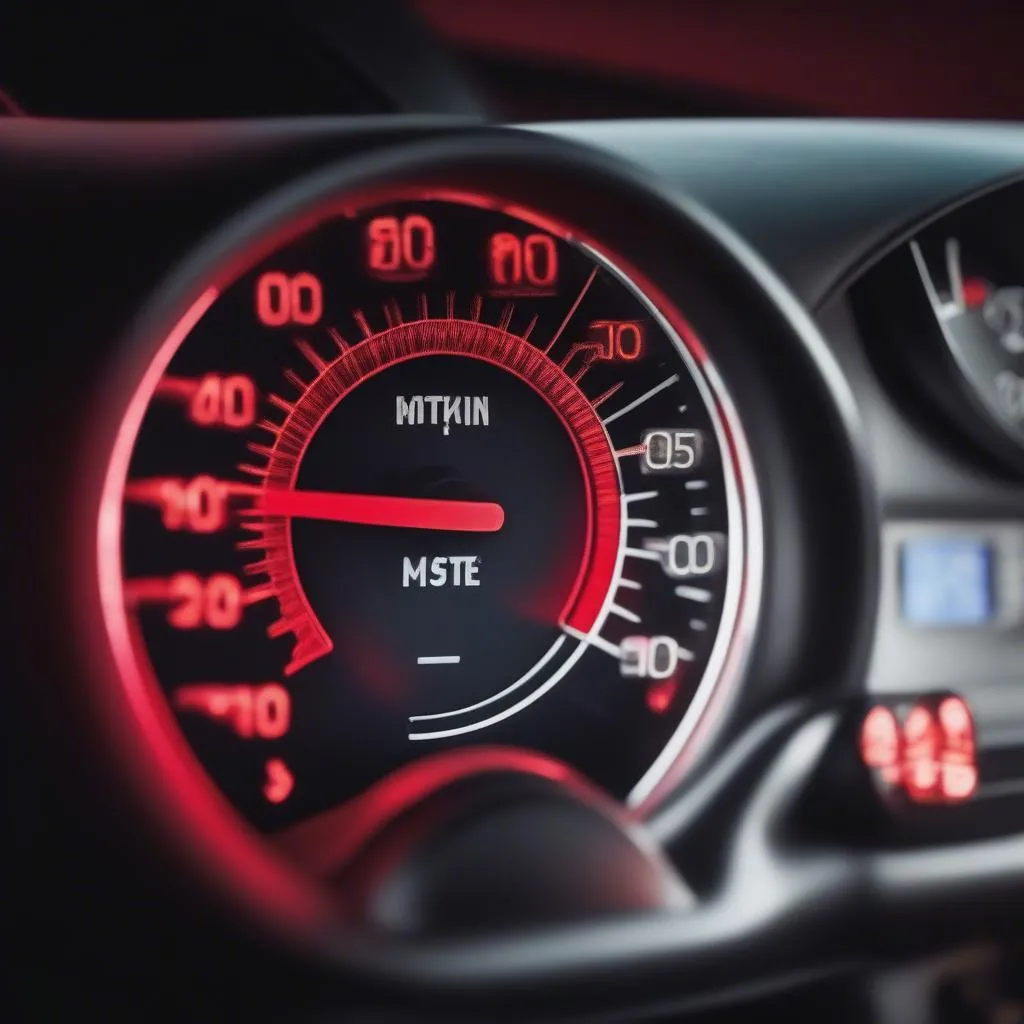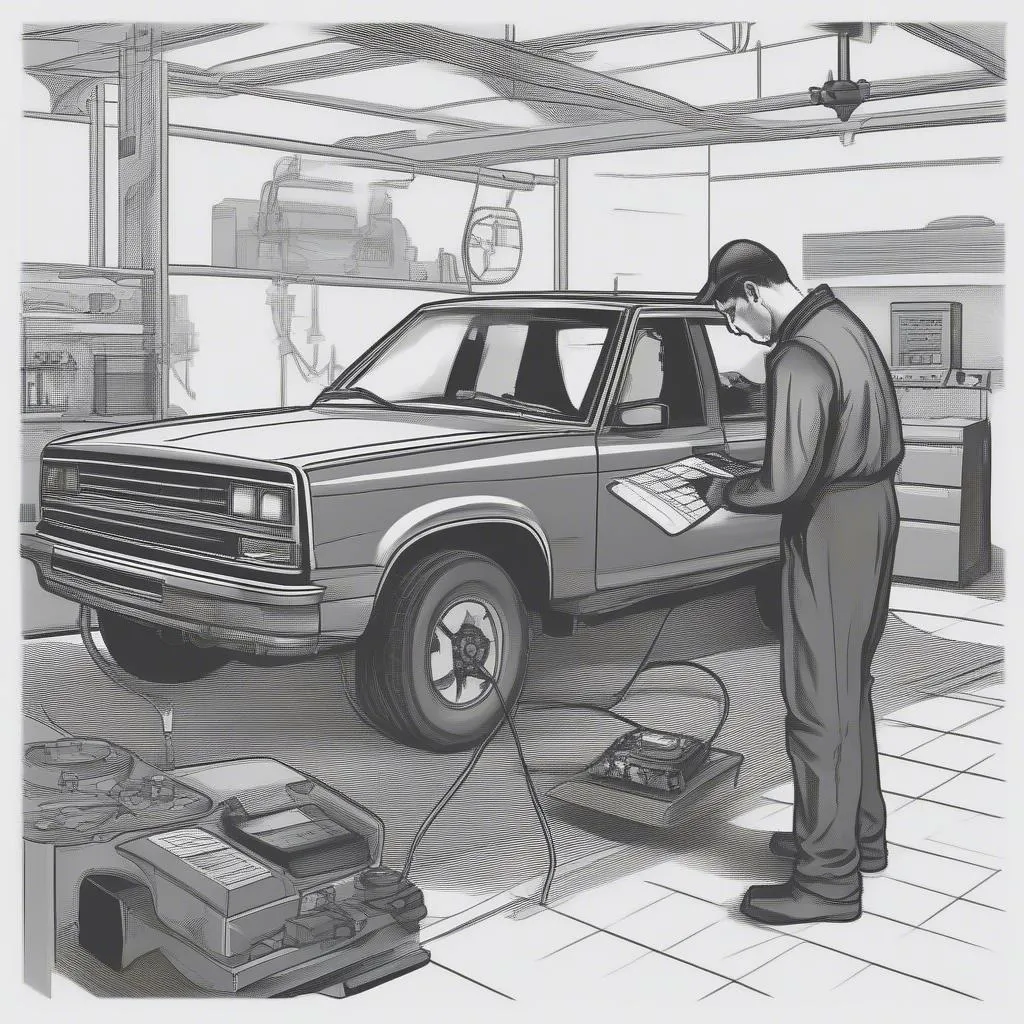Imagine driving down a highway, enjoying the open road, when suddenly a bright orange light illuminates your dashboard. It’s the dreaded check engine light, and it’s blinking ominously. You pull over, heart pounding, wondering what’s wrong with your car. You’re not alone – this scenario is a common nightmare for many drivers.
Understanding the Check Engine Light
The check engine light is a critical component of your car’s onboard diagnostic system (OBD). It acts as a signal from the car’s computer, alerting you to potential issues that could affect performance, fuel efficiency, or even safety. When the light comes on, it’s essentially saying, “Hey, something’s not quite right! Take a look.”
The Mechanics of the Check Engine Light
The check engine light isn’t always an immediate cause for panic. Think of it as a signal that your car’s internal “doctor” has detected a potential problem. The light itself doesn’t tell you what the problem is; it’s more like a symptom. To diagnose the cause, you’ll need to get your car inspected by a qualified mechanic.
Common Causes of the Check Engine Light
A flashing check engine light is usually a more serious issue than a steady light. While there are numerous reasons why the check engine light might go on and off, some of the most common culprits include:
- Loose Gas Cap: A surprisingly frequent reason for the check engine light to flicker is a loose or damaged gas cap. A loose gas cap can lead to evaporative emissions, which can trigger the light.
- Faulty Oxygen Sensor: This sensor monitors the amount of oxygen in your car’s exhaust. If it’s faulty, it can cause the check engine light to go on and off, leading to decreased fuel economy.
- Spark Plug Issues: Worn-out or misfiring spark plugs can trigger the light.
- Bad Catalytic Converter: This crucial part of your exhaust system helps reduce harmful emissions. A malfunctioning catalytic converter can lead to the check engine light flashing.
- Mass Airflow Sensor (MAF) Problems: The MAF sensor measures the amount of air entering the engine. A faulty MAF can disrupt the engine’s fuel-air mixture, causing the light to come on.
What to Do When Your Check Engine Light is On and Off
While the check engine light can be a source of stress, don’t panic! Here’s what you should do:
- Don’t Ignore It: Never ignore a check engine light, even if it’s just flickering. A problem that seems minor can escalate quickly.
- Check Your Gas Cap: The first step is to make sure your gas cap is securely fastened. Sometimes, simply tightening it can solve the issue.
- Get a Diagnostic Scan: The best way to determine the cause of the flickering light is to have a mechanic perform a diagnostic scan. This will read the car’s computer codes and pinpoint the problem.
- Address the Issue: Once you know the cause of the check engine light, get it fixed promptly to prevent further damage or complications.
- Seek Professional Advice: If you’re unsure about any aspect of your car’s maintenance or repair, don’t hesitate to consult a trusted mechanic.
Frequently Asked Questions:
Q: Why does my check engine light come on intermittently?
A: There are several reasons for the check engine light to come on and off. It could be a minor issue like a loose gas cap or a more serious problem like a faulty sensor. A diagnostic scan is the best way to determine the cause.
Q: What should I do if my check engine light comes on and off while driving?
A: If your check engine light is flashing while driving, it usually indicates a more serious issue, such as a misfire or a problem with the catalytic converter. Pull over safely as soon as possible and get your car inspected by a mechanic.
Q: Can I continue driving with a check engine light that comes on and off?
A: It’s generally not recommended to drive with a check engine light, especially if it’s flashing. Ignoring the light could lead to further damage or even a breakdown.
Q: Will the check engine light go off on its own?
A: Sometimes, a check engine light might go off on its own, particularly if it was triggered by a minor issue like a loose gas cap. However, if the light is flickering due to a more serious problem, it won’t go off without addressing the root cause.
Conclusion
A check engine light that goes on and off can be a perplexing issue, but it’s essential to take it seriously. Don’t let a flickering light turn into a major problem! Get your car inspected promptly and address the issue to ensure your safety and the longevity of your vehicle.
 check engine light
check engine light
 mechanic scanning car
mechanic scanning car
Remember: If you’re experiencing issues with your car’s check engine light or need help with diagnostics, our team of expert technicians is available 24/7 to assist you. Contact us at +84767531508 for immediate assistance!
For more information about diagnosing and troubleshooting check engine light issues, explore these related articles on our website:
- Why Does My Check Engine Light Go On and Off?
- Check Engine Light Going On and Off: What Does It Mean?
- My Check Engine Light Goes On and Off: What Should I Do?
Don’t forget to leave a comment below if you have any questions or experiences with check engine light issues!